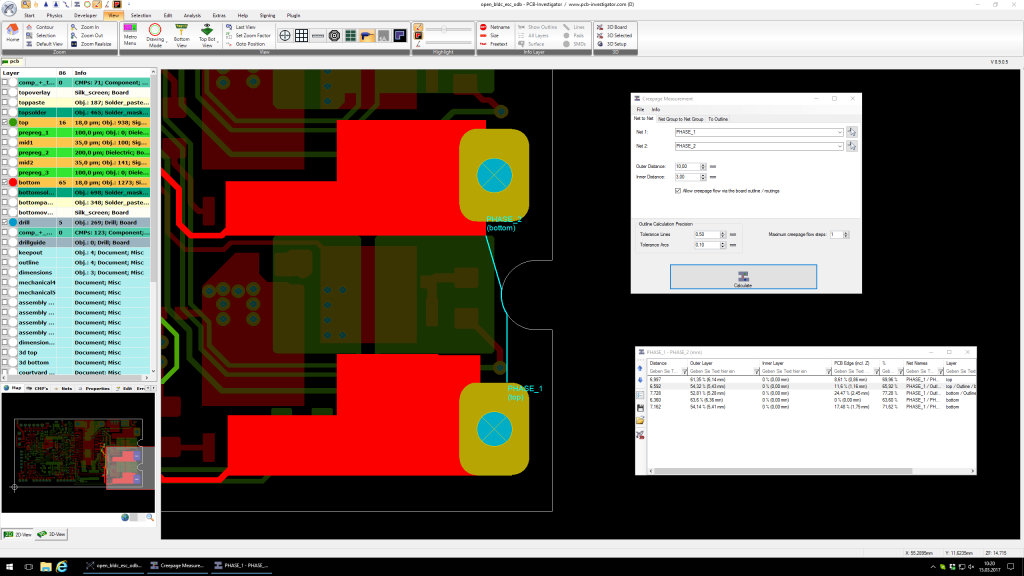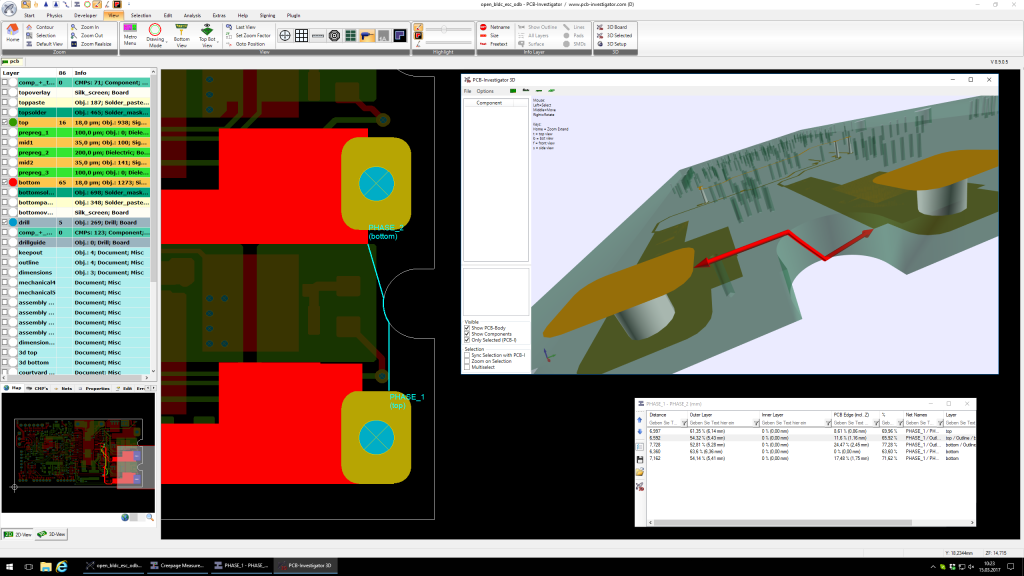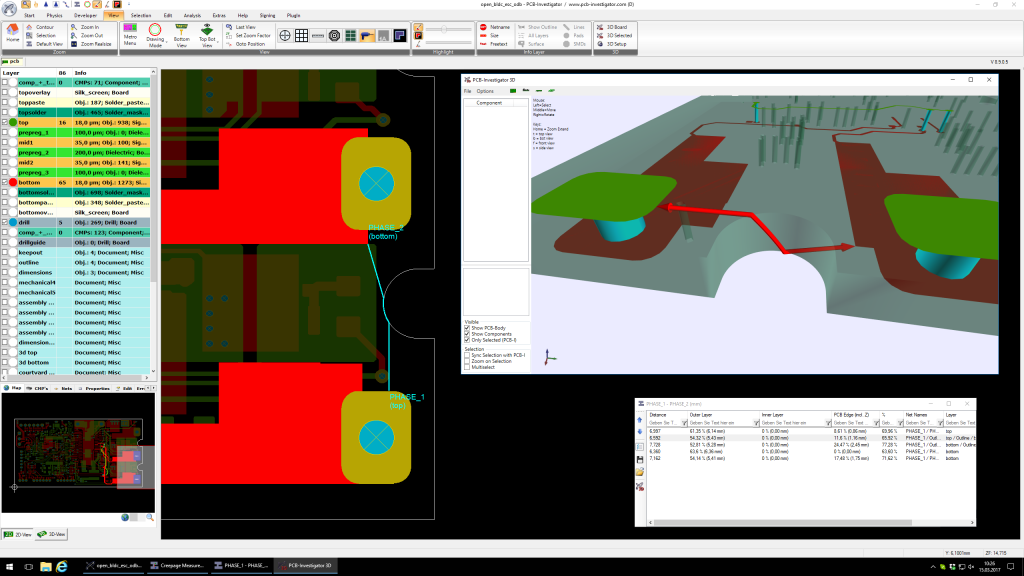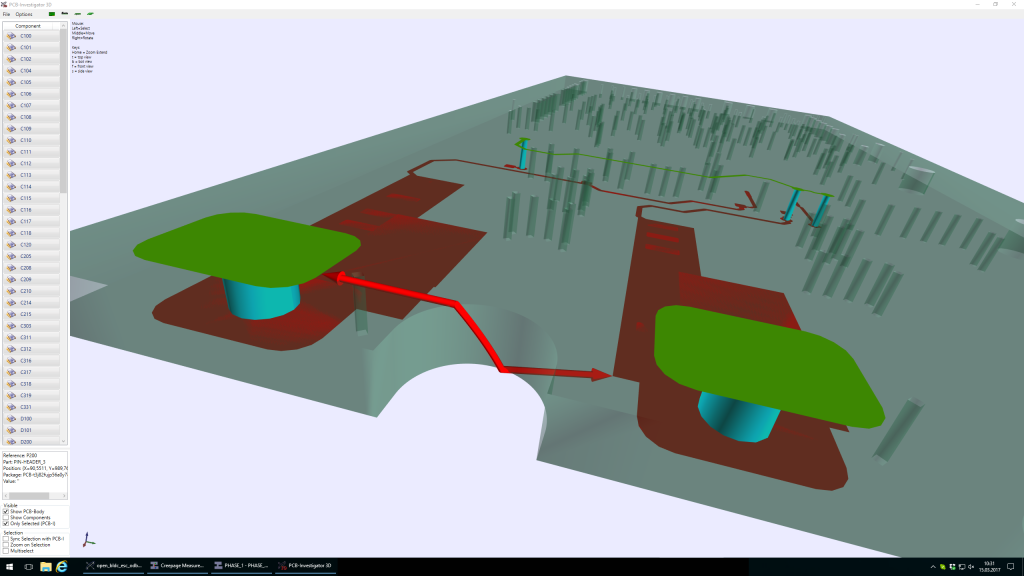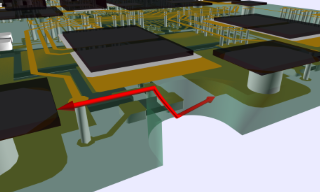
Even those who develop circuits with more than 30V, for example, are confronted with safety requirements. From the point of view of leakage current prevention, minimum distances between conductive components must therefore be maintained, such as those specified in the DIN EN 60664 VDE 0110 series of standards, in IPC2221A or UL60950-1.
The subject is highly complex – for example, the degree of contamination plays a role in the creepage current properties of insulating materials and whether expected non-conductive contamination can temporarily develop conductivity as a result of condensation. The whole thing becomes really exciting when, as in drive technology, even greater voltages and damage risks are involved.
The automatic creepage current analysis now calculates the shortest paths over the outer edges of the conductive parts to each other and to the outer edge of the board. Uncoated drill holes (e.g. retainer holes) and indentations are also taken into account – paths that would be very time-consuming to calculate “by hand”.
The results are displayed in 3D graphics for better understanding. At the same time, many measurement errors known from manual analysis are avoided here. For example, distances that run at a shallower angle around the edge of a board or drill edges are actually measured diagonally – instead of at right angles, as is often the case manually. With thicker stacks, such measurement deviations can already become significant.
The evaluation of the creepage and clearance analysis is displayed as a percentage of the specified distance. This means that for each calculated section between two contact points, the software determines what proportion of the specification is achieved. If the total is less than 100 percent, this distance at risk of breakdown is highlighted in the analysis result.
Check out our new video tutorial and contact us to get a trial version of the software.
Ensure the functional safety of your PCB design! Use the PCB Investigator leakage current analysis for your layout review!
User manual:
You can find a detailed user manual here.
Press article:
English: Simplifying Automated Leakage Current Analysis



